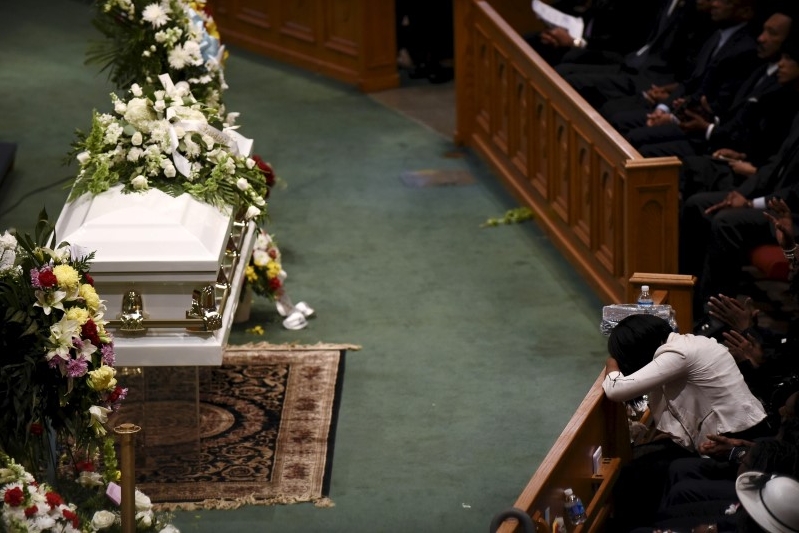
A Maryland judge declared a mistrial on Wednesday in the trial of the first of six Baltimore police officers charged in the death of Freddie Gray, whose killing sparked riots and arson in the city in April.
The jury had deliberated for 16 hours on whether the officer, William Porter, was guilty of involuntary manslaughter in Gray's death from injuries suffered while in police custody. After it reported it was unable to reach a verdict, Baltimore City Circuit Court Judge Barry Williams issued his ruling.
"I do declare a mistrial," Williams said after the jury of seven women and five men said they were deadlocked on all charges. He said an administrative judge would set a new trial date as early as Thursday.
Asked by defense lawyer Joseph Murtha if he wanted to appear at Thursday's hearing, a relieved-looking Porter said, "No."
The panel had said on Tuesday that it was deadlocked, but Williams told the jurors to keep trying to reach a verdict.
Porter was the first of six officers to be tried in Gray's death, from a broken neck suffered while he was transported in the back of a police van.
The black man's death triggered protests, rioting and arson in the majority-black city of 620,000 people, and intensified a U.S. debate on police treatment of minorities. It followed the police killings of black men in cities including Ferguson, Missouri, and New York, which sparked the Black Lives Matter movement. While many of the officers involved in the killings were white, Porter and two of the five other Baltimore officers in the Gray case are black.
CALLS FOR CALM
Mayor Stephanie Rawlings-Blake urged people to remain calm over the ruling. "We must respect the outcome of the judicial process," she said in a statement.
Officials in Baltimore had come under heavy criticism for a restrained initial response to April's riots, which some observers contended allowed arson and looting to spiral out of control.
"I urge everyone to remember that collectively, our reaction needs to be one of respect for our neighborhoods," Rawlings-Blake said. "In the case of any disturbance in the city we are prepared to respond."
Large numbers of police had been stationed around the city over the past days. Within minutes of the judge's ruling, a phalanx of uniformed officers surrounded the courthouse, pushing a group of a few dozen protesters back and arresting at least one man.
The charges against the other officers range from second-degree murder for the van's driver, to misconduct.
Warren Brown, a Baltimore defense lawyer who was in the courtroom, said of the decision, "I am not surprised at all. I think you will have the same scenario with the other trials."
He said he wanted to see if the jury broke down on racial lines. Seven of the jurors are black, and five are white.
Porter was charged with involuntary manslaughter, second-degree assault, reckless endangerment and misconduct in office.
Gray, 25, was arrested after fleeing from police. He was put in a transport van, shackled and handcuffed, but was not secured by a seat belt, in violation of department policy. He died a week later.
Porter, who was a backup officer, testified Gray told him he needed medical aid. Porter told the van's driver and a supervisor that Gray had asked for aid but none was summoned, according to testimony.
The defense argued that Porter did not believe Gray was seriously injured until the van's final stop. His lawyers have said that Porter acted as any reasonable officer would have.
"In some ways, a hung jury might be better than an acquittal," Deray McKesson, a prominent U.S. civil rights activist, said on Twitter.
One legal expert said he was surprised to see a mistrial declared on just the third day of deliberations.
"I thought the judge would never declare a mistrial absent a fistfight until the jury had been deliberating for six or seven days," said Jim Cohen, a professor at Fordham Law School in New York. "They chose the wrong defendant to try first."






